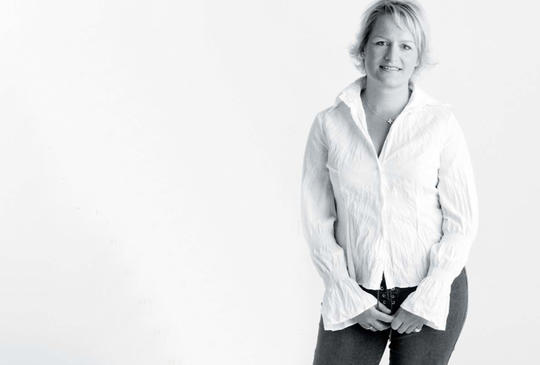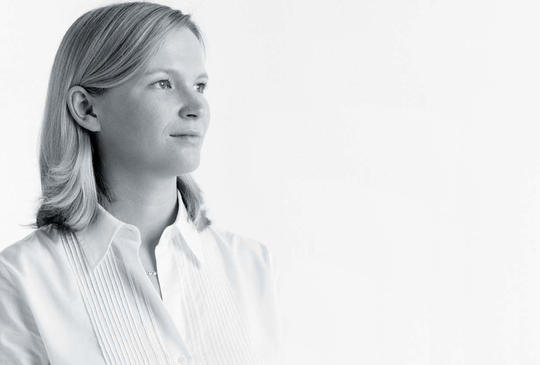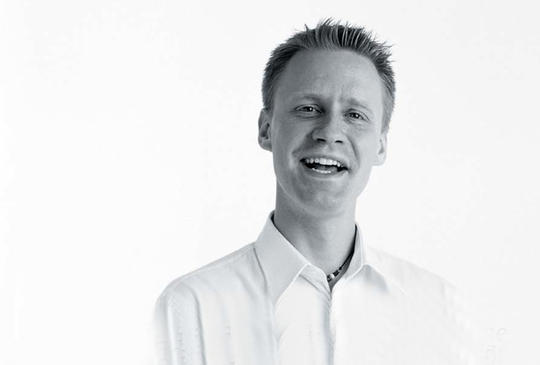
The new white shirts: corporate social responsibility
Something is shifting in the world of business. Companies are coming under ever-greater pressure, from within as well as without, to take social and environmental concerns more seriously. In England’s Northwest there are some leading players in the brave new world of Corporate Social Responsibility.
Where’s our Brent Spar?
Most people in the UK hadn’t even heard of Enron until its dramatic collapse grabbed headlines around the world at the tail end of 2001. The crash of the energy trading company exposed a myriad conspiracy of greed, of looking the other way and of corporate duplicity. The final humiliating denouement of Enron and its executives, complete with seedy stories of shredded documents and huge bonus payments, has shocked corporate America to its core.
But for the grace of God, good planning and sheer luck, the UK has not suffered as humiliating and shocking a collapse as Enron. The fact that one of the world’s biggest accountancy firms, Andersen, also collapsed as its complicity in the debacle was exposed only highlights the seriousness with which rules on corporate governance and corporate social responsibility are now held.
But the Enron affair is of a different character. True enough, even before the present fallout from the Texas-based giant, you could point to a legion of examples of companies all over the world who failed to take societal concerns into account and then fell foul of well-orchestrated campaigns about their business performance. One of the most notable examples of this has been Shell, which faced a barrage of negative publicity about both the disposal of the Brent Spar oil platform in the North Sea and subsequently about its conduct in Nigeria. The campaigns against the oil giant resulted in boycotts, lost sales and declining profits. It prompted a shift in attitudes in boardrooms right across the world - “where’s our Brent Spar” executives would ask, forcing them to reassess what it means to be a socially and environmentally responsible organisation.
It has thrust corporate social responsibility to the top of the corporate agenda, forcing businesses to justify their activities at every level. The Confederation of British Industry’s director general Digby Jones knows this.
In June 2002, he mounted a strong defence of the reputation of British companies following concern about a rise in anti-business sentiment. He accepts that business must shoulder some responsibility for negative attitudes. He called on the business community to redouble efforts to “demonstrate the fundamental importance of socially-inclusive wealth creation.”
Sustainable business practices represent more than just good corporate citizenship
and a fireguard around your reputation; sustainability pays real dividends. On London markets the new FTSE4Good Index series has been designed to track the performance of large companies dedicated to high standards of environmental performance, human rights and stakeholder engagement. Backtesting shows that the top 50 of these companies, tracked through the FTSE4Good UK 50, would have outperformed the conventional FTSE 100 by 15% over the last five years. The Dow Jones Global Sustainability Index (DJGSI) similarly tracks the performance of the world’s most ‘sustainably-managed’ companies.
There are businesses in England’s Northwest that not only answer the questions before they are even posed, but they set the very standards of good practice and good citizenship that others follow and copy.
From 1994 to 2000 the companies on the DJGSI would have outperformed the standard Dow Jones Global Index by 15% per annum were the index to have been created seven years ago. Sustainability means good business, in every sense.
There are businesses in England’s Northwest that not only answer the questions before they are even posed, but they set the very standards of good practice and good citizenship that others follow and copy.
One pre-eminent force behind corporate social responsibility is a particular treasure of the Northwest, the Co-operative movement. It has left a legacy of social responsibility based on the values of self- help, self-responsibility, democracy, equality, equity and solidarity; Co-operators also believe in the ethical values of honesty, openness, social responsibility, and caring for others. One of the guiding co-operative principles specifies that ‘co-operatives work for the sustainable development of their communities through policies approved by their members.’
Paul Burke is the social accountability manager at the Co-operative Insurance Society in Manchester. His work is vital in assessing the secondary effects of the business on the wider community and driving new initiatives to make the Society a relevant business with strong social credentials. He questions some of the very notions of how business philanthropy is practised and how companies really engage in communities.
“Philanthropy has been in existence for many years, but has been evolving and changing to meet the needs of today’s customers, businesses and society, leading to what we now call community involvement. We live in a sceptical world, full of mistrust, where customers are wary of any organisation that appears to be giving ‘out of the goodness of their heart’.
”But is this really the basis of community involvement? It is in part a positive and community spirited activity for any organisation to be involved in and can help a business to build relationships with the local community, improve employee morale and build reputation, as well as helping the organisation to feel good about having put something back into the community, but this is only part of the story.
”Apply the right strategy to any community involvement programme and this provides a solid business case from which to work. The starting point of any community involvement activity should be to look at the needs that exist within society and at the issues which cost the business money, where the overlaps exist is where the community involvement aspects of any social accountability programme should sit.“
The starting point of any community involvement activity should be to look at the needs that exist within society and at the issues which cost the business money
Burke explains that one of the key issues facing his company is drug addiction and drug related theft; they cost the insurance industry an estimated £723 million each year. It is with this in mind that the Co-operative Insurance Society (CIS) supports drug addiction charity, Addaction. Burke says: “By supporting this charity we are providing help where it is needed the most. At times we have faced criticism for our support but we cannot afford to ignore the fact that people who take drugs cost our business. This is a serious problem and by helping to address this issue, we are in effect helping our business, the insurance industry as a whole, policyholders, the local community and drug addicts.”
Burke also urges staff at the Society to get involved in community projects, be it volunteering or mentoring. “The support of our employees underpins our entire community involvement programme. Their commitment secures the programme’s effectiveness and they are important ambassadors of the schemes. The volunteering carried out by staff members means that CIS ’donated’ more than £128,000 worth of employee’s salaries in support of good causes over the last twelve months.”
Projects like these have led to Burke taking on greater responsibility for developing corporate social responsibility programmes. He has been appointed as a director of the
Corporate Responsibility Group (CRG), an organisation made up of 56 of the
UK’s leading companies, all of whom are committed to adopting a social, ethical and environmentally responsible approach to business practice and have a strong track record in developing corporate social responsibility initiatives.
“I hope to be able to share with colleagues our experiences in CIS and the wider co- operative movement and convince those outside the Group that corporate social responsibility is of moral importance and a vital business necessity,” says Paul Burke. And he’ll continue to be responsible for pulling all aspects of CIS’s Social Accountability Programme together and ensuring that the objectives and commitments made by the Society are on target to meet the deadlines set out in the Social Report.
Elsewhere around the region United Utilities, an energy supplier, is at the forefront of social programmes. Engagement in wide-ranging environmental and social programmes, and development of lasting community partnership initiatives form a key part of the Group’s business decision- making. The company has also been prominent in the field of environmental and social reporting, winning several major awards culminating in the company being ranked 12th by the United Nations in a study of the world’s top corporate citizens.
United Utilities was one driving force behind a Northwest-wide programme developed to gauge the environmental and social performance of the Northwest’s leading private, public and voluntary sector organisations: Evolve Towards Sustainability.
Launched by the Environment Minister, the Rt Hon Michael Meacher MP, in December 1998, it is a partnership programme led by Sustainability Northwest and the Northwest Business Leadership Team, sponsored by Pilkington plc, the Co-operative Bank and Biffaward. The main objective of the Programme is to celebrate excellence in environmental and social performance. Organisations participating in Evolve engage in a process of self-assessment that enables them to determine their strengths and identify areas for improvement. The scope of the Evolve programme covers environmental performance; how organisations in the region respond to the needs of both internal and external stakeholders; and how social and environmental responsibility can be balanced with economic performance.
Since its launch, the Programme has recruited some of the region’s largest organisations, and these are now involved in assessing their corporate social and environmental responsibility and benchmarking their progress against each other and sector examples of best practice.
Against this seemingly positive backdrop, there are pressures building within government for greater regulation of corporate social responsibility, a policy drive that is resisted at every turn by the myriad of organisations representing the business community. A private member’s bill on corporate responsibility was put before parliament by Labour MP Linda Perham that would make companies publish environmental and social impact reports each year. “We do not support a mandatory approach and believe that a one-size-fits-all policy is not possible,” was the response from the CBI, but there is a recognition that to fend off future bids to compel them to audit socially, businesses need to sharpen up their act.
But there are other pressures being brought to bear on business: falling share prices, heightened competition and increasing regulation. Corporate social responsibility has to come from the heart and involve a root and branch acceptance of the core principles. It has to run through a company like a cheeky message through a stick of Blackpool rock. It’s not just a tick in a box, it has to represent a new force in modern capitalism, or it is nothing.
And it’s worth remembering that one of the greatest recent supporters of social responsibility in corporate America was an energy company from Texas called Enron.
New white shirts

I am delighted Littlewoods are with the leaders in the field of corporate social responsibility - I feel proud that my company understands the importance of sustainability because it really matters for all of us.
Sarah Barlow, Ethical Auditor, Littlewoods.

We’re serious about social and environmental issues at CIS and it’s one of the reasons I feel so at home in the organisation. Our commitment to reporting - and acting- on our corporate performance in these areas is more than PR gloss, it sits at the heart of the way we want to do business in the future.
Jennie Gibbons, Social Accountability Team, CIS.

It was one of the main reasons I joined United Utilities in the first place - United Utilities’ long- standing commitment to schemes that provide a real benefit to the community it serves.
Steve Chapman, United Utilities

The wind industry that we could service from England’s Northwest will be worth £3 billion by 2010 - that means new jobs and new businesses developing out of clean, sustainable energy
Chris Shearlock, Renewable Energy Business Development Manager, Envirolink Northwest
Corporate communitarians
Every good campaign has a Geoffrey Piper.
Blessed with skills of diplomacy and determination in equal measure, the chief executive of the Northwest Business Leadership Team (NWBLT) has notched up an impressive range of achievements in the region since the Team was formed in 1992.
Piper recognises above all that every business, no matter how small or large, has an impact on the communities in which it operates. Impacts can occur through the recruitment and training of employees or via the purchasing and promotion of products and services. At the same time, the decline of traditional industries over recent years has caused a range of community-based social problems such as poverty and unemployment, which often exacerbate other social issues.
The roots of the Team lie in the aftermath of the riots that took place in the Toxteth area of Liverpool in 1981. Set against a backdrop of one of the most deprived parts of a city in rapid decline, the riots were amongst the worst ever seen on mainland Britain and shocked ordinary people to their core. Piper, then the senior partner of accountants Deloitte in Liverpool was instrumental in bringing business leaders and community groups together to look at practical solutions.
“Some serious thinking went on back then that brought together some of the leaders in the business community. We realised that a strategic plan for the Northwest could help the region achieve a great deal,” he reflects.
By 1993 Piper was key in bringing together the public and private sectors to form the NWBLT, formally launched that year by the Prince of Wales in Blackburn. The Team targeted five projects that included bids for the Olympic Games; regeneration in Hulme and Moss Side in Manchester; and the establishment of environmental best practice, which involved the formation of an environment action group. The group laid down the requirement for all companies in the team to adopt and actively implement an environmental policy.
The NWBLT now brings together a group of the most influential business leaders in the region to address key strategic issues affecting the well being of the Northwest and the quality of life of its citizens. The team works closely with the Northwest Development Agency (NWDA) and the Northwest Regional Assembly (NWRA) to improve key aspects of the region’s competitiveness (such as skills and communication) and the marketing of the region’s assets. Indeed, those bodies have subsequently adopted many of its functions. The team also plays a significant role in promoting best practice in social inclusion and sustainable development through its member’s corporate community investment activities and commitments.
What the NWBLT has achieved, however, is all the more impressive when you consider it was formed in the era before extensive initiatives to take social exclusion and regeneration as a policy priority.
“Once we had our strategy, we used it relentlessly to float through ideas which eventually led to the formation of Sustainability Northwest,” he says, referring to the region's business-led, sustainable development organisation.
The election of a Labour government in the UK has sought to involve businesses in programmes or initiatives to address many of the social problems occurring in local communities. For example, the government’s Social Exclusion Unit (SEU), National Strategy for Neighbourhood Renewal and New Deal for Communities, all seek to involve the private sector. In addition, the adoption of corporate social responsibility (CSR) strategies by many companies, and the increasing use of the private sector to deliver products and services that were previously the preserve of the public sector, have led to a proliferation of corporate community partnerships.
In the Northwest several companies have spearheaded their own initiatives, many rooted in their own ability to influence events within their immediate sphere. The key factor is the recognition of a problem, and an assessment of where the company can be most effective. The achievements are impressive.
The Co-operative Bank, for instance, is working in partnership with the innovative Community Foundation for Greater Manchester to set up the ‘You want it - You got it’ fund to achieve sustainable, long-term improvements to the lives of young people in the Greater Manchester region.
The fund is giving grants of £500 to up to 20 youth-based community projects such as the Wellfield project in Bolton, Greater Manchester. Here, a group of teenagers has turned a derelict house on a run-down estate into a much needed community centre, providing services such as a crèche and youth centre, giving the estate a greater sense of community and leading to a drop in the incidence of petty crime.
The founders of the project will use the grant to fund training in outdoor pursuits so that they can provide kids on the estate with expanded opportunities. In addition to the grants, recipients are given training provided by Weston Spirit and the Greater Manchester Council for Voluntary Organisations.
The bank found an intelligent solution in the Community Foundation, part of a growing national network of umbrella charities that form channels for giving to local community projects and charities.
Part of the Co-operative Bank’s ‘Customers Who Care’ programme, the initiative follows a 2001 campaign with customers to combat youth poverty. Deciding to focus on child poverty in specific deprived areas in Greater Manchester, its consideration was not how much to give, but how to give most effectively. The bank found an intelligent solution in the Community Foundation, part of a growing national network of umbrella charities that form channels for giving to local community projects and charities.
Simon Williams, head of corporate affairs at the Co- operative Bank says the main priority is to match ideas with ambition. “We originally commissioned research to discover the views of 200 young people living in deprived areas of Manchester and Brighton. The researchers met with talented and creative youngsters who had big ideas and aspirations but who felt very much alienated from the system and neglected at a local level.”
Says Nick Massey, Chief Executive of the Community Foundation for Greater Manchester: “’You want it - You got it’, is a pioneering initiative that demonstrates how effective a community involvement programme can be. By giving training alongside funding we are empowering these young people, giving them a real sense of responsibility.”
Kellogg’s, which has its European corporate headquarters in Manchester, believes ‘that many of the complex social problems facing people and communities cannot be resolved without business participation’. As such, the company has become a prominent player in corporate social responsibility and, in particular, has forged strong links with the communities in which it operates. In 2000/01, Kellogg’s community investment totalled a £850K programme of cash donations, employee time and gifts in-kind.
It has provided core funding and representation at board level to the Moss Side and Hulme Community Development Trust and Old Trafford Community Development Project, thus enabling local people to be involved in the regeneration of their own communities, and has forged a strong relationship with the national charity Rathbone, which provides training and support for young adults, particularly those with learning difficulties. Kellogg’s has supported the cost of Rathbone’s Special Education Advice Line for the last three years.
Part of the mission of the Liverpool-based retail group Littlewoods plc relates to `being a responsible corporate citizen that takes an active part in improving the quality of life in the communities we and our customers live and work in.’ In 2000/01, Littlewood’s total contribution to community investment was £2.5 million. This figure comprised cash donations and ‘in kind’ support, such as surplus products, employees’ time and the use of company resources. Littlewoods community investment focuses on regeneration, charity work, mentoring and in-kind giving.
In 2000/01, Littlewoods gave £1.4m (cost value) of product to BDF Newlife, the national birth defects charity. BDF Newlife repairs and de-brands company products for
sale through their warehouse outlet network. Littlewoods donates 10 per cent of BDF Newlife’s products. Littlewoods also works closely with the national charity In- Kind Direct, which offers products to other registered charities through a specialised brochure. Through the charity, Littlewoods has donated a significant amount of merchandise to a range of charities over the past 12 months.
United Utilities (UU), which operates water and electricity utilities internationally, recognises that because of its size and the nature of the products and services provided, the company ‘inevitably has an impact on the communities in which it operates’. During 2000/01, UU’s community investment amounted to over £2.8 million. In order to address the environmental impacts of its activities, UU has developed a range of community-based environmental programmes and initiatives. These include the Eden Rivers Trust programme, the Cumbria Broadleaves project and the Fazackerley Reed Beds initiative.
Many of these projects exist in the realm of grace and favours. The projects undoubtedly do sterling work; the biggest challenge for the Northwest is to ensure that the benefits and legacies of such projects are understood right through a company and amongst other business leaders. This is, partly, where the Northwest Business Leadership Team comes in: the region indeed is lucky to have Geoffrey Piper, and lucky to have some fine examples of corporate community partnerships.
Luck isn’t all you need, though.
Photography by Tracy Gibbs
Contributor Profile
Michael Taylor is an events producer and writer. He used to write about sport, music, fashion, design and culture – but that was in Australia in 1989. He came home and became a moderately successful business journalist. In 2012 he gave up Blackburn Rovers, alcohol, carbs and a job. He’s now started his own events and publishing company and is the chairman of business lobbying group Downtown Manchester, a director of Liberty Pensions and is on the board of the University of Manchester Alumni.

